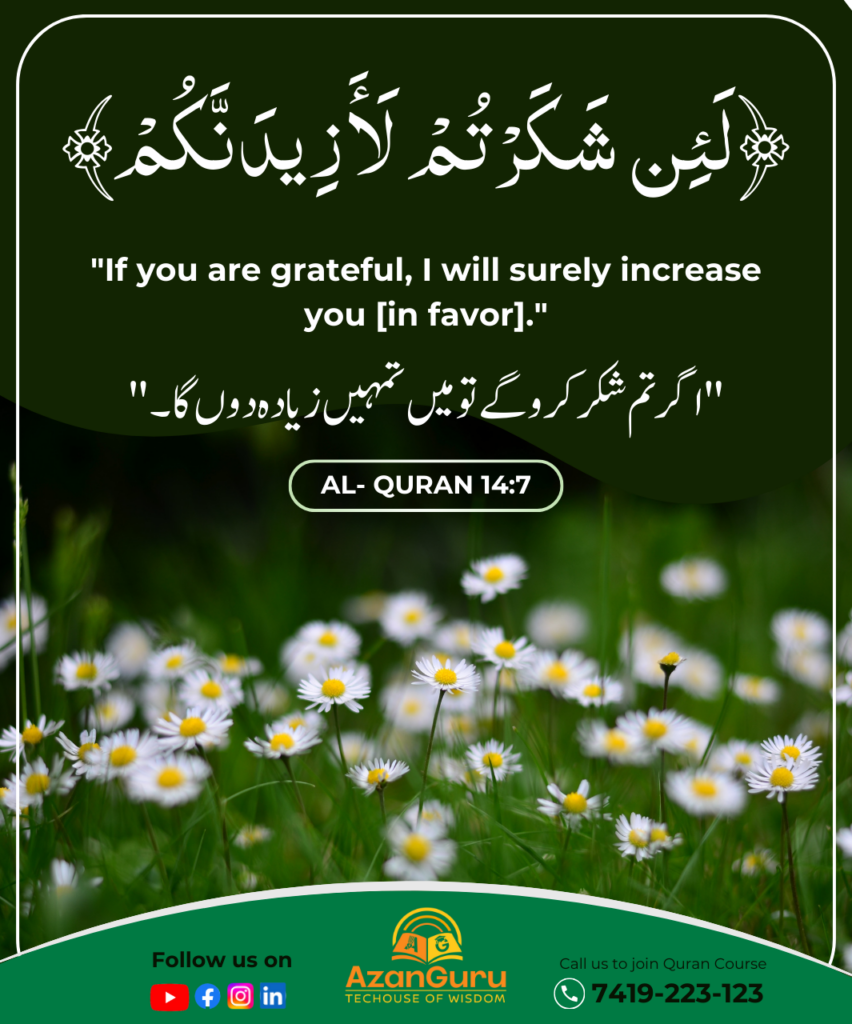The Power of Gratitude in Islam
Gratitude, or Shukr, holds a significant place in Islam. The Quran emphasizes the importance of recognizing and appreciating Allah’s countless blessings. Gratitude is not just a verbal expression but a way of life that nurtures contentment, humility, and reliance on Allah.
Gratitude as a Command from Allah
In the Quran, Allah frequently reminds us to be grateful for the favors He has bestowed. Everything we have, from our health to our wealth, is a gift from Him.
“فَٱذْكُرُونِىٓ أَذْكُرْكُمْ وَٱشْكُرُوا۟ لِى وَلَا تَكْفُرُونِ”
“So remember Me; I will remember you. And be grateful to Me and do not deny Me.”
(Quran 2:152)
This verse highlights the reciprocal nature of gratitude. When we remember Allah and express our gratitude, Allah increases His blessings upon us.
Gratitude Leads to More Blessings
Being grateful not only brings inner peace but also attracts more blessings from Allah. The Quran guarantees that those who are grateful will see an increase in their favors.

“لَئِن شَكَرْتُمْ لَأَزِيدَنَّكُمْ”
“If you are grateful, I will surely increase you [in favor].”
(Quran 14:7)
This promise serves as a motivation to continuously reflect on and appreciate Allah’s bounties.
Gratitude in All Circumstances
Islam teaches us to show gratitude not just in moments of ease, but also during hardships. Recognizing that every situation is part of Allah’s divine wisdom encourages a positive outlook and strengthens faith.
“وَقَلِيلٌۭ مِّنْ عِبَادِىَ ٱلشَّكُورُ”
“And few of My servants are grateful.”
(Quran 34:13)
This verse serves as a reminder that true gratitude, in all situations, is a quality possessed by only a few.
Conclusion
Gratitude in Islam is more than a feeling; it is a daily practice of recognizing Allah’s endless blessings and responding with worship and righteous deeds. Through gratitude, we strengthen our connection to Allah and enrich our lives spiritually and materially.
